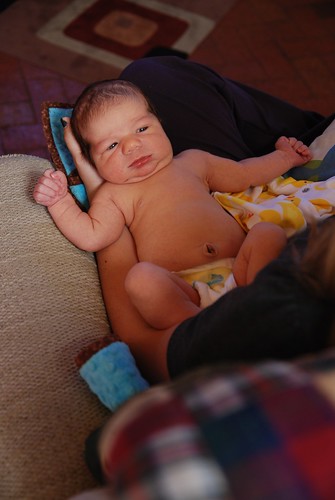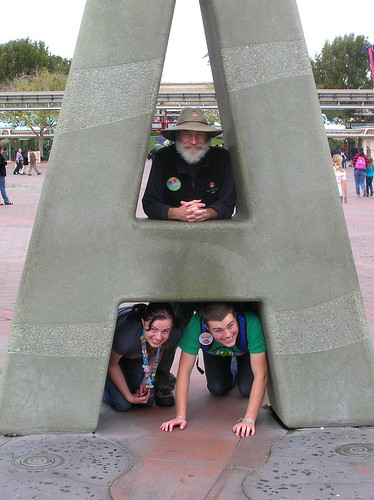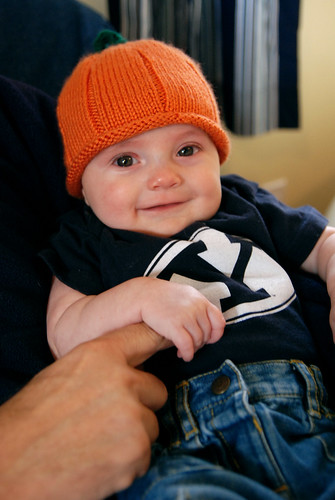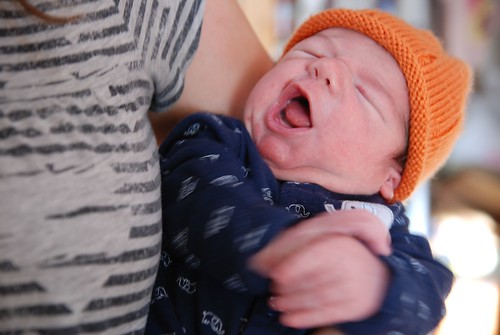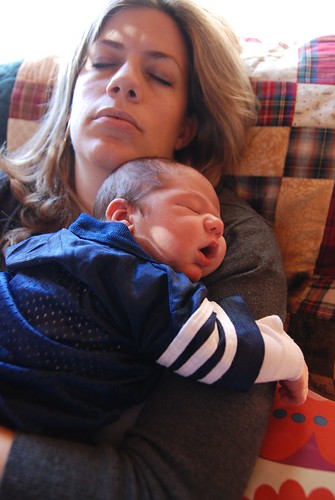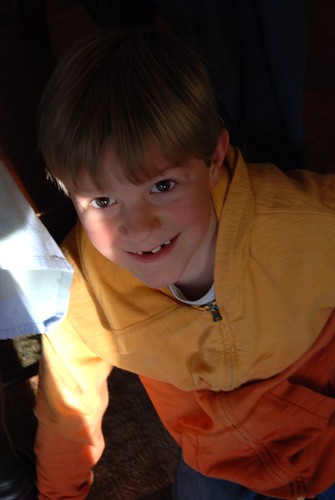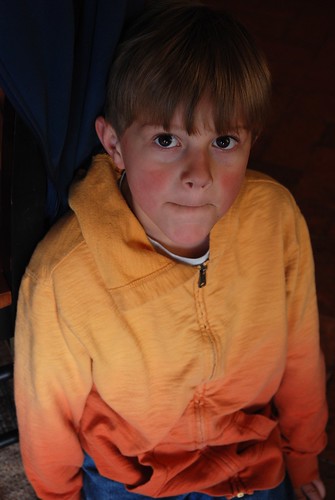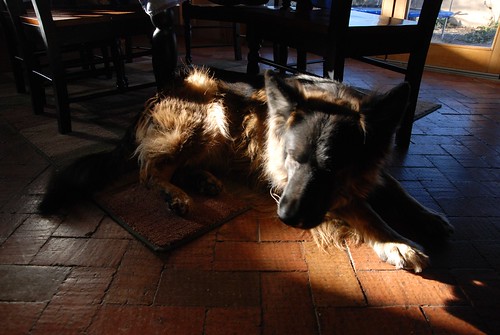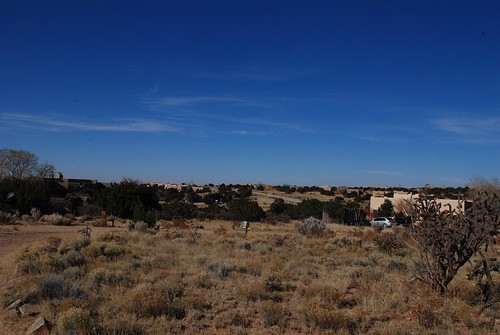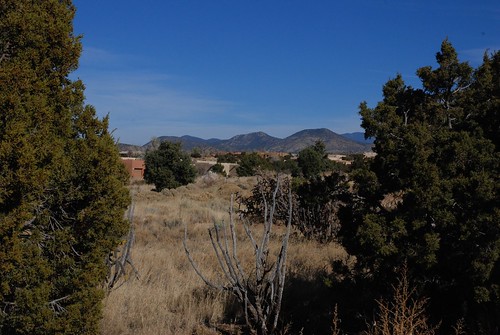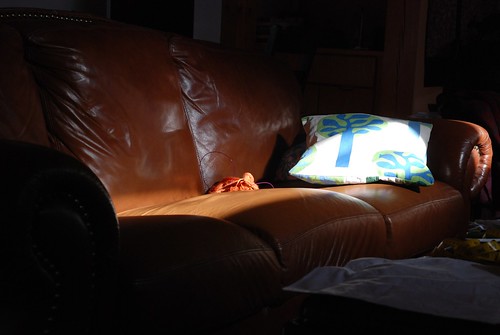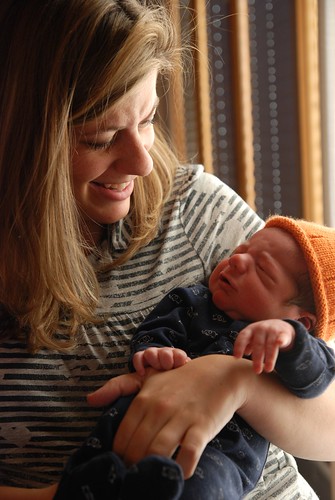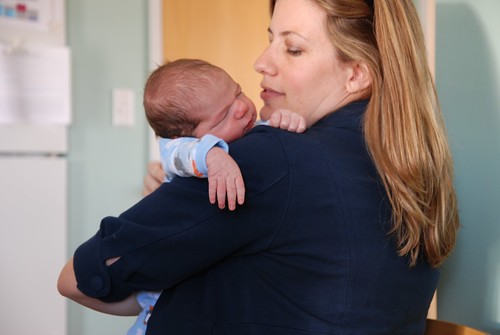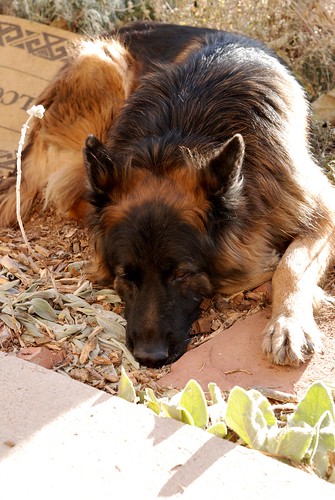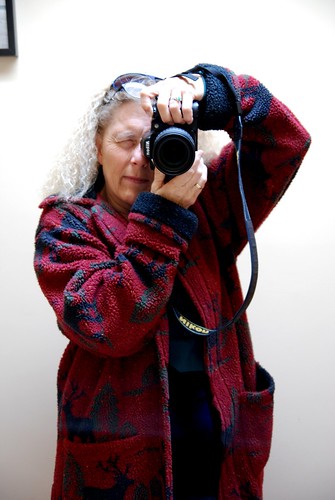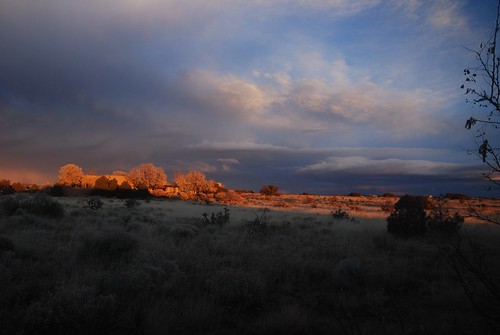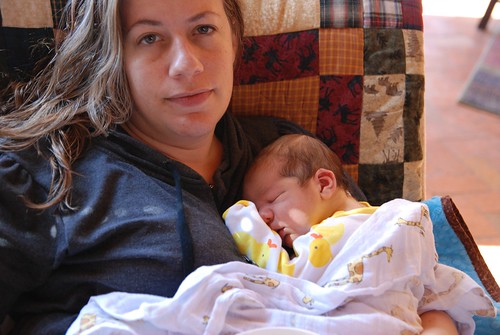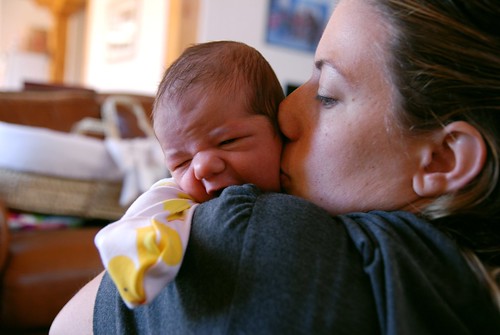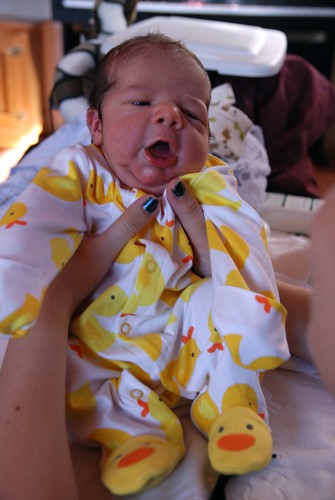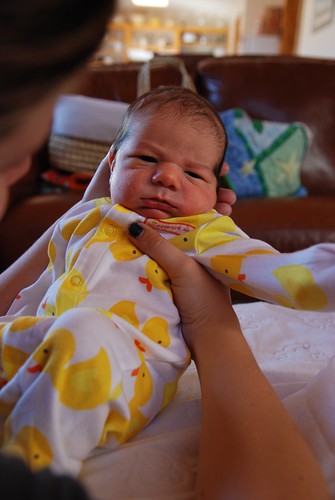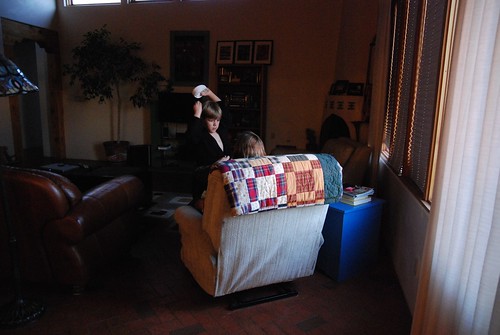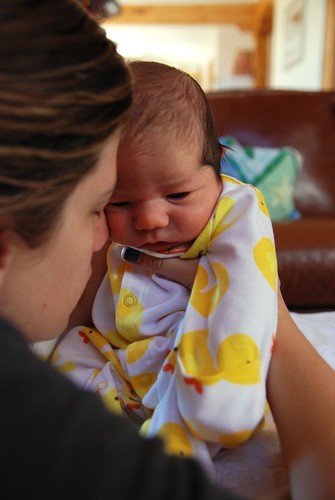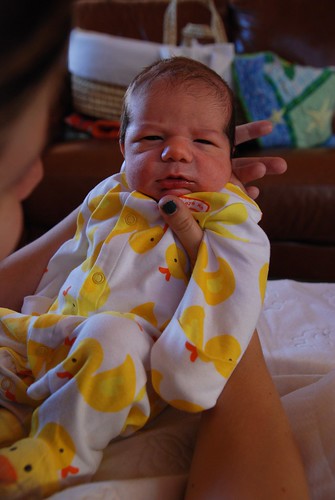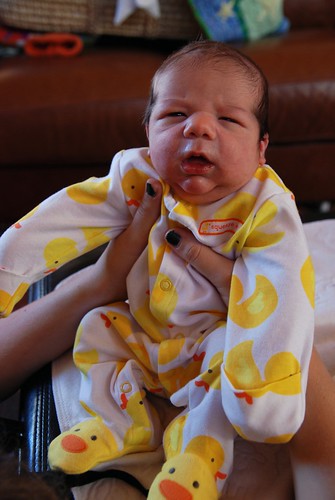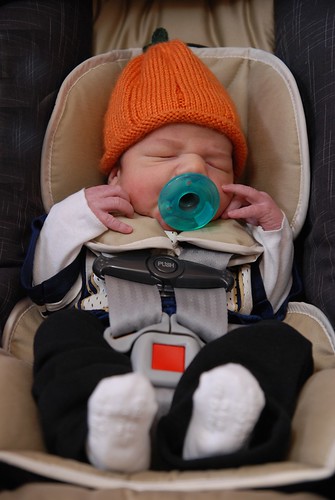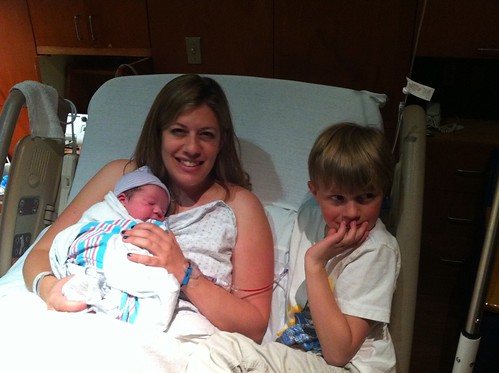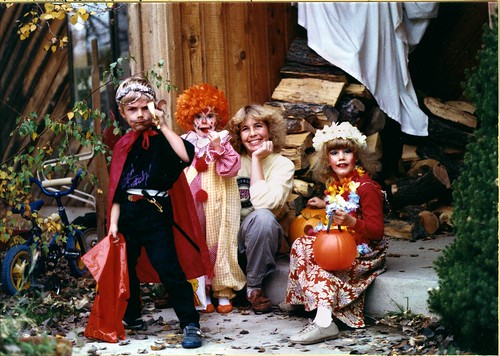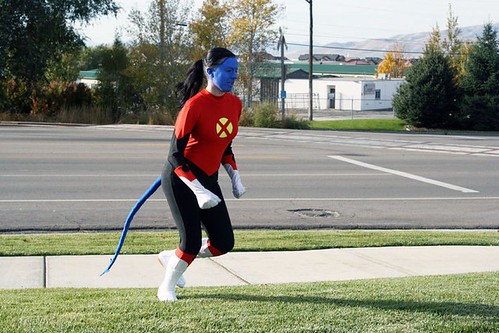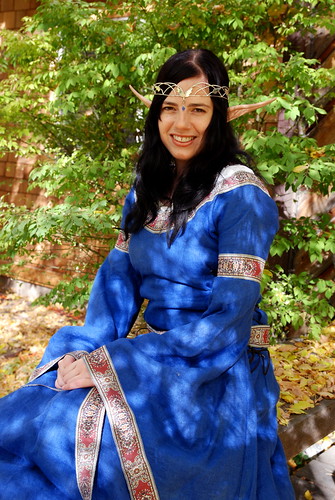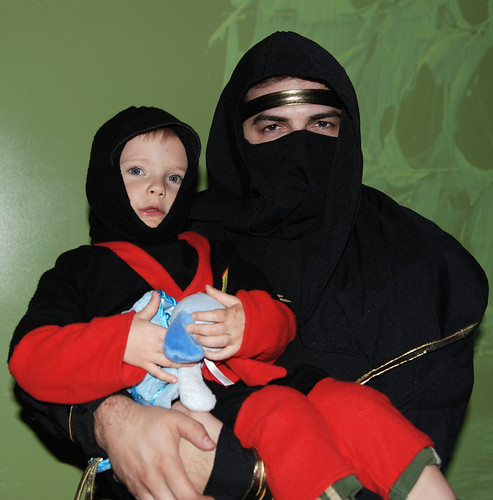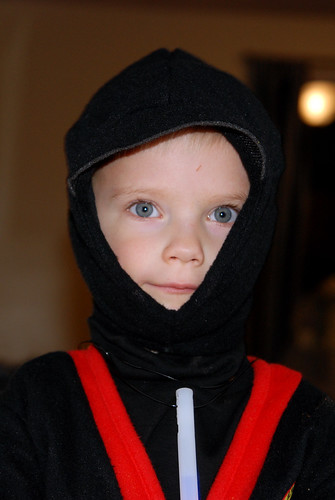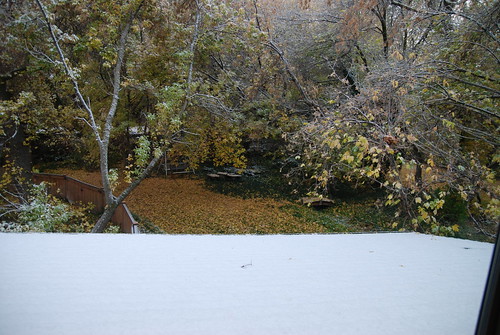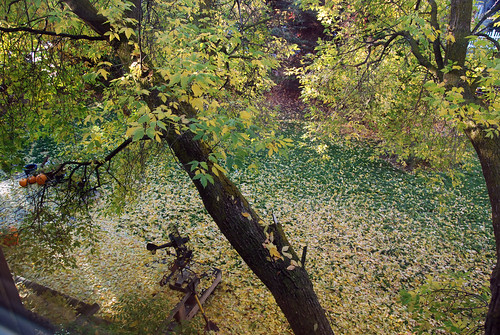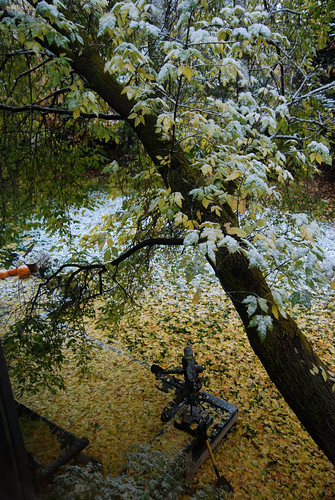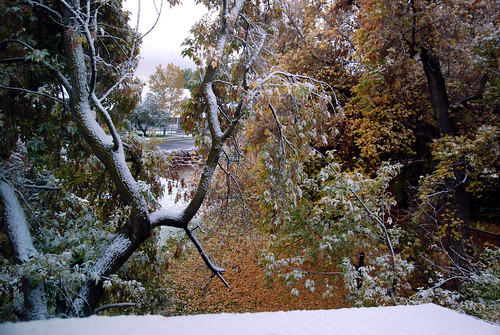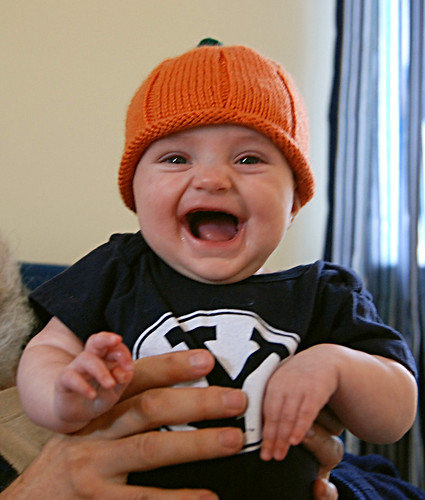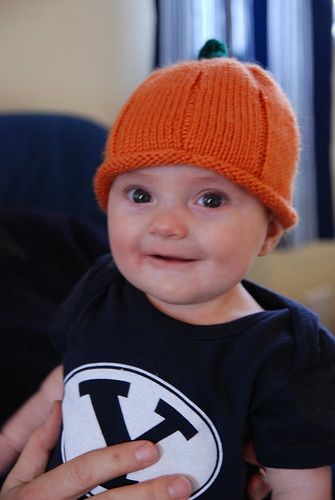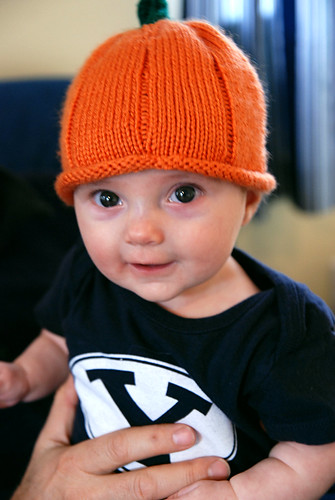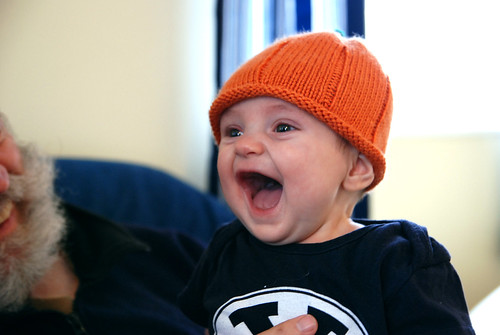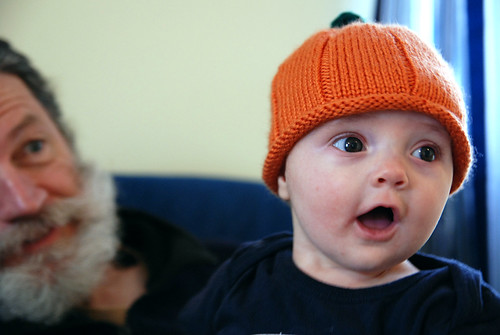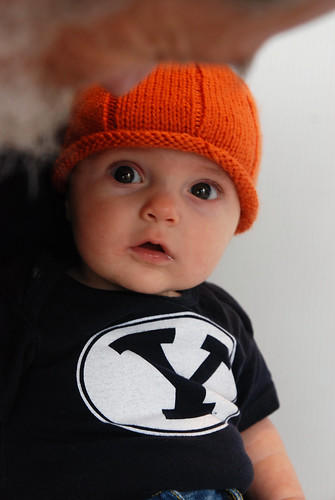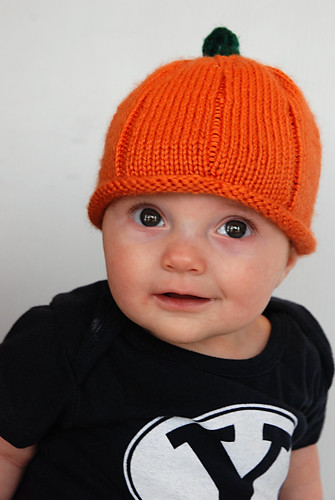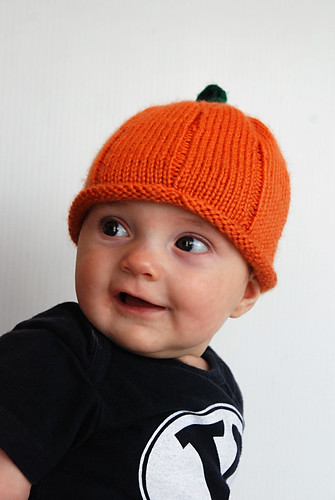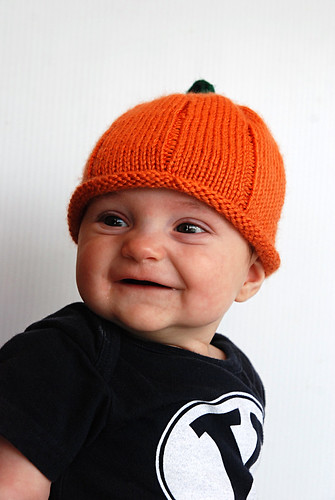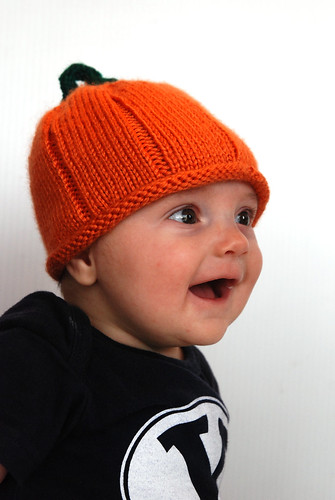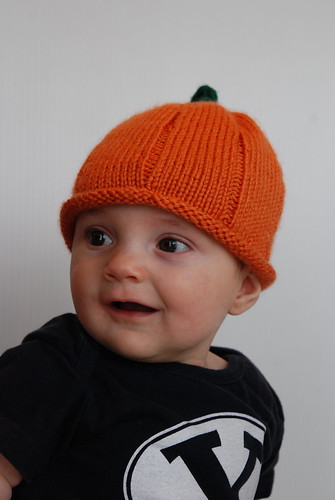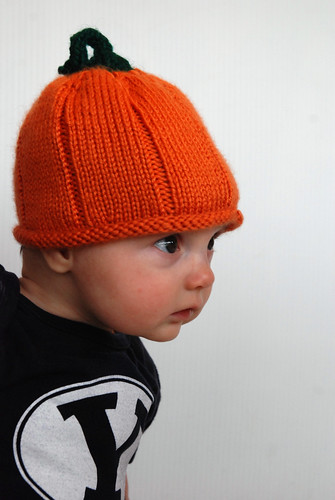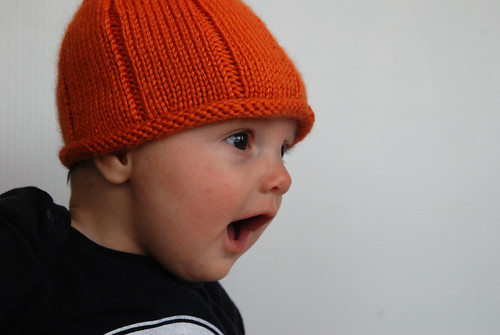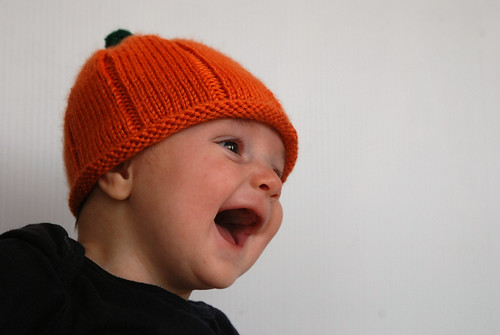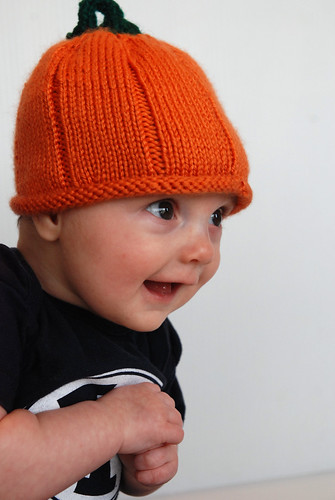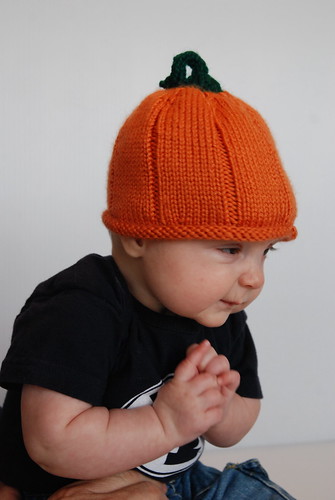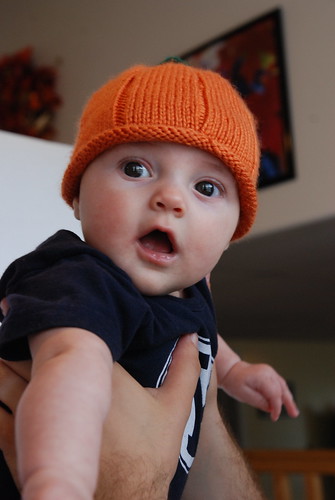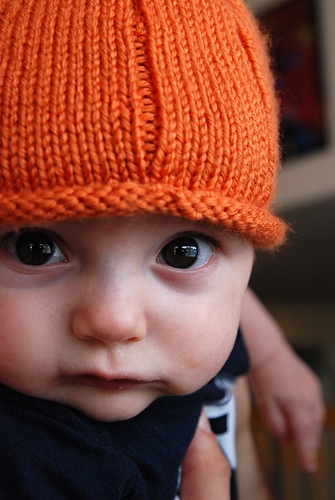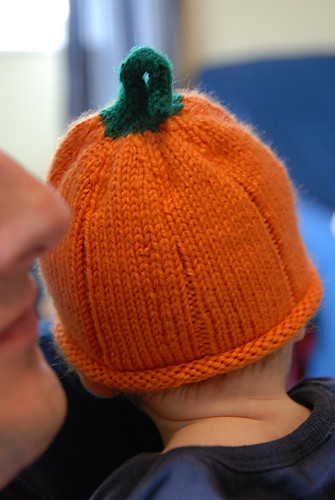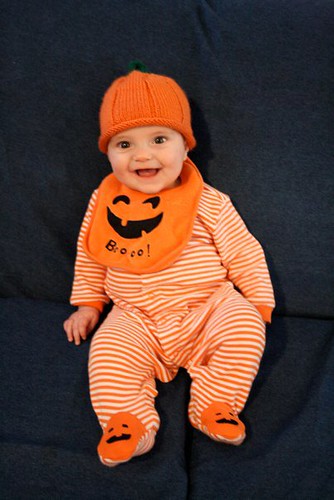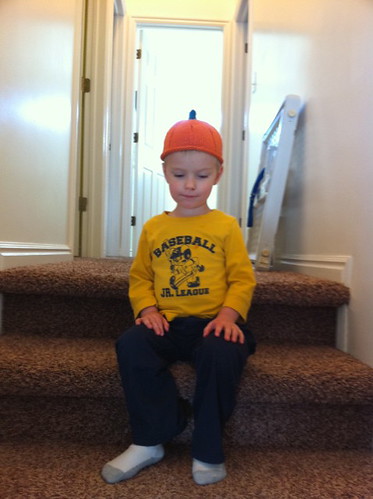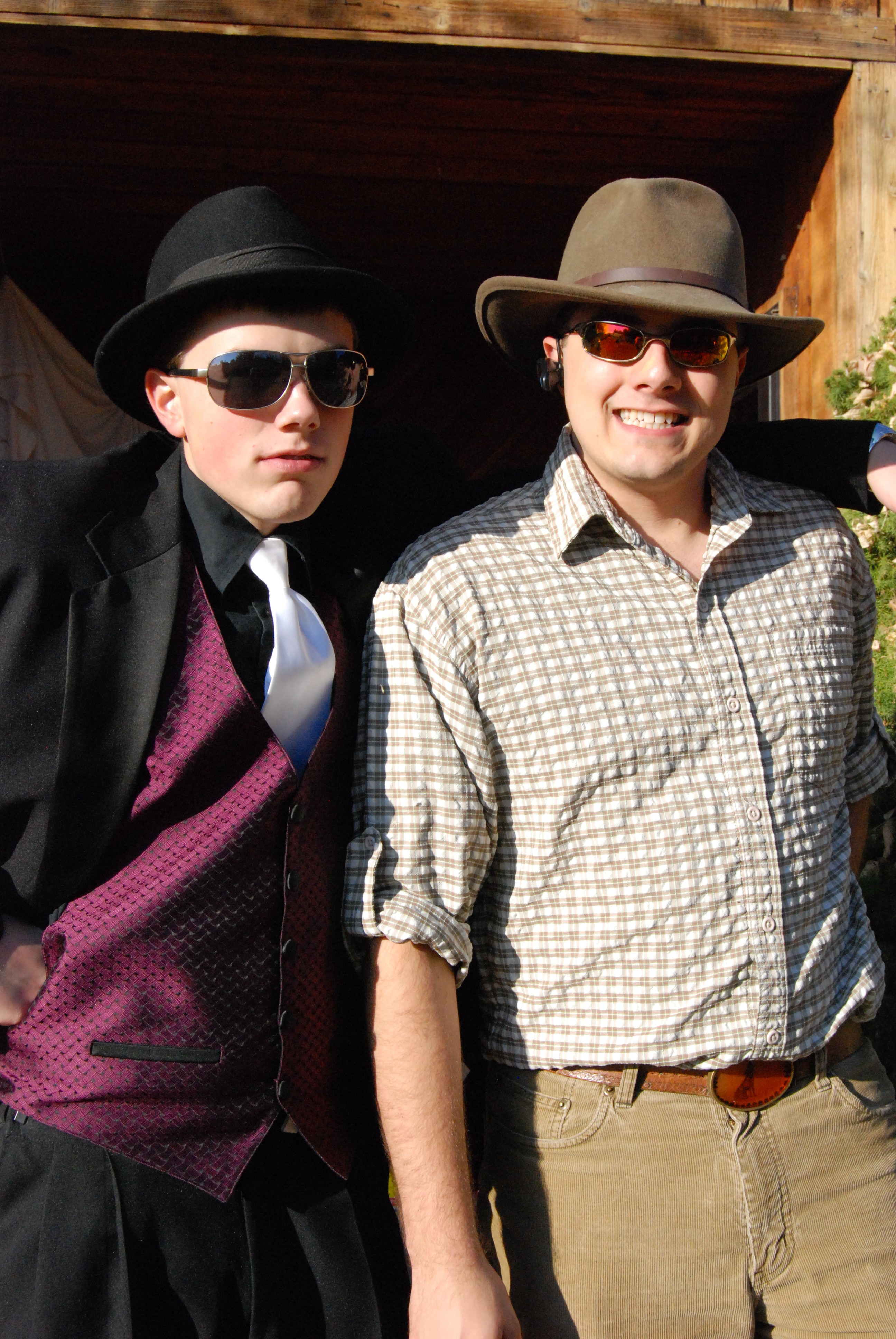A long but, you know, fascinating and timely argument:
On the way out to Santa Fe, I went through the usual security checks – I took off my coat and shoes and put them in a tray. I removed my computer from my bag and put that in a tray. I also removed my ziplock bag of less than 6 ounce semi-liquids and put them in a tray – and I sent all of these trays and my carry-on bags down a moving belt, through an x-ray machine (x-rays? Really? How Buck Rogers of them) to make sure I had no life-threatening devices about me. Then I walked through a metal detector, collected my things, reassembled them and went on my merry way.
When I checked my other bag, full of unnatural autumn leaves, berries, birds and small pumpkins and fruit (for the making of wreaths) – along with a small bit of floral wire, a wrapped present or two and a load of new baby clothes—all very carefully packed because some of these things were fragile, I warned the bag checkers that I had weird stuff in there. They assured me the bag would be fine, so I left it with them.
When I got to the other end of that trip, I found that the bag had been searched, the things inside shifted, sifted through. The largest present, which I had put on the very bottom because its weight might crush all the autumn things, had evidently been opened, paper torn and crumpled. And they had put it right on top of the fragile stuff when they were finished. So all my care in packing was undone.
I was pretty ticked when I figured out what had happened.
On the way back home a week later, I had a different experience with TSA, the U.S. group responsible for airport security. Instead of having me go through the metal detector, this time they made me stand in this glass cubical, my feet on a set of white footprints, painted on the floor. The position they asked me to take was unnatural and weirdly disturbing.
“Is this that scan?” I asked, because I truly didn’t know. It could have been just another odd New Mexico thing, an artistic version of the metal detector. “Yes,” the man told me. But by that time, they were finished. And I came out the other side, all before I’d even had time to consider how I felt about going through it.
But here’s the thing: each and every inconvenience I had gone through—and it’s all very inconvenient—had a purpose: these people were trying to make sure I made it to my daughter’s house without being blown up.
Simple as that.
A couple of pretty outrageous stories about the TSA have been circulating in the last couple of weeks, fomenting some kind of grass-roots rebellion: US citizens are being subject to outrageous indignities by an overbearing government. Yeah, well. Every time you accept protection from harm – whether it be at the hands of parents, police, church leaders or God himself—it’s going to chafe a little, isn’t it?
All of these stories are about the body scanner. One of them has the added feature of a little boy with a metal safety pin in his clothing. In the story, the TSA agent announces, after the metal detector has gone off, that he has to search the child—picks him up, and immediately carries him away while the mother is restrained and left behind. I will go on record as saying that the unacceptable element in that procedure was not in the searching of the child, but in the separation of child from mother. Absolutely, seriously, violently unforgivable.
A person I am interested in protecting.
But I am wondering this: can there really be a single person living on this planet naïve enough to believe that the enemy who has put us all in this awkward and distressing position would not, in fact, blow up a little child just to make a point? Or that the enemy cannot be any race, dress in the conventional clothes of any country at all—that he or she can be recognized by sight alone?
Call me crazy, but I don’t want to be traumatized or atomized when I travel. Paying for the ticket, and then for a bad sandwich, and knowing they don’t clean the seats between trips anymore is trauma enough. Being personally assaulted and then blown up is kind of at the top of my unacceptable list.
First, may I say that the scan thing—while it’s personally uncomfortable to have to stand in their prescribed manner, and while I do worry about the radiation involved—is really no big deal. It’s not like somebody is going to be sitting in some secret office, getting jollied up over pin-up-poster images of me. (pin ups of me – LOTFRWL.) The images they see are hardly personal. And I just don’t care that they see the outline of my body.
Again, remember—there are people out there who want to blow me up. People who are crazy, violent, full of hatred and ingenuity. People who don’t even know me personally.
I don’t want them to do it.
I want somebody to check us all for hidden explosives and weapons. I think, considering the past few years’ world experience, that checking carefully for these things is a really good idea.
Other lives that deserve to be protected.
I place the blame on this: a perverted sense of religious duty, and behind that, a sick and evil obsession with power. And I’m not talking about the US government or the French government or any other that insists on airport security measures in this world.
Let me say that I truly believe what I believe about the universe, and that I’m pretty certain that, even if you share my particular general belief system, you and I do NOT believe the exact same thing.
I will submit this: I believe that there are as many concepts of God out there as there are people who believe in God at all. That concepts of God are complex things—a mixture of scriptural reports (mostly fuzzy at best), our own needs and fears and hopes, our experiences with authority (starting with our own fathers), our cultural contexts, and well-meaning paintings done by people who have never actually seen God.
I believe that there is a God. A real one. And he knows exactly who he is. But that we can only guess, through a life-time’s experience, at his true nature and face. Which hardly makes any one of us a total expert.
I also believe that every single person has to deal with this guessing, and is entitled to think what he or she will during the process of guessing—which could, and probably should, take your whole life long. Entitled—but only up to a point; if your belief includes a God who will cheerfully slap you on the back and hand out sexual partners (willing ones??) and real estate as a reward for your murder of any and all people who don’t believe what you believe, then I pretty much consider you criminally insane.
Period.
And how about this one?
The ridiculous part of all of this:
The God I believe in doesn’t need the help of a bunch of fanatics to clean out the gene pool for him. He is perfectly capable of dropping a mountain on your head if he finds your presence on the planet too annoying to ignore. And he’s very good at floods and earthquakes and planetary fire-storms when he wants to be.
Which seems to be hardly ever.
The important part of all of this:
The God I believe in seems content to allow all of his children to blunder through their lives, making mistakes, trying to discover the meaningful truth, even when the mistakes end up hurting other people. He allows us to police ourselves as we learn and grow to limit harm. Because the learning process is the point of our being here.
Do these fanatic murderers, then, believe in a helpless, limp-wristed God? Which is interesting because they don’t seem to believe in a loving God who is crippled and bound by his sense of mercy, either.
Like I say, I believe that none of this is actually about religion—except that religion is the pawn here. It’s about power. World domination. Greed. And manipulation. From what we’ve seen, the actual people used to terrorize the rest of us seem to be people who don’t really understand the religion they are being asked to serve. Because they don’t seem to have read their entire cannon of scripture—only the exciting parts. And if 9/11 is any indication, these people don’t even live their own religion, really. If they did—avoiding alcohol, staying sexually honest—maybe they’d be too busy to run around killing the rest of us.
No. I don’t think this is about belief. And the puppet masters must chuckle to themselves at night, so pleased to think of how much power they have over their fellow creatures.
This is my religion: life has meaning. I believe that we were once elemental beings, dedicated to what we were in the way that an atom of silver is dedicated to be an atom of silver. It always behaves like silver. It doesn’t have a choice. It is what it was created to be. And we, being creations of God, (called: His children), were what we were, stuck in the eternal nature in which we had been framed.
But for our Father, this was not enough for us. He wanted us to be more.
And this one?
He made a planet for us, and designed eco-systems and laws of physics: a sort of campus for us, complete with entrance requirements and rules of engagement. And sent us here, where we wear the suits that suit the environment, with computers in our heads outfitted with a basic operating system. But the computers are self-programming (not artificial intelligence. Real intelligence in its highest and purest form).
(By the way, these are not the words and images typical of my own religious philosophy—I’m rendering that philosophy in my own odd way, here.)
Because he wanted us to be Real Boys. So the point of all of this planetary experience is our growth and self-discovery. He takes off the obligations of our elemental nature and says, “Find out what you really are. Make choices. Choose your behavior.” (Can you imagine the chaos in the universe if all atoms were allowed to decide how many electrons they wanted to carry?) “But make sure,” he adds with serious firmness, “that you respect each other and take care of each other. Cause no harm as you make your choices during your time here. And don’t waste your time. Love me, so that you will learn to love each other. Because only in doing this will you become real.”
And with that, he set us free to scurry around on the planet, creating chaos.
Because only in freedom can each man discover his own true nature.
If someone forces you to pray, tells you who to worship, threatens you with pain and death for failure in these things—will your “religion” be real? I can’t see how. Only in choosing it. Choosing one set of behavioral rules over another—generosity in place of the basic greed of the operating system, for instance—sacrifice instead of self protection—do you actually become something to the core. Only in trying and failing and trying again can you discover what you really are, what you really want.
And at the end of our lives, will we go through a scanner of sorts—something that will show us a very clear image of what we have, by our own choices, become? A mirror that is relentless and brutally accurate: the truth of our own behaviors and nature.
If people are not allowed to live through their lives, how can they finish this process?
But even while I say this, I admit that in policing ourselves, there are times when the earth-behavior of some people, people who cause chaotic harm, has to be limited. Arbitrary harm cannot be allowed. It just can’t. It’s a matter of balance. Always balance – and mercy and justice factor into these things.
So maybe this is the real result of all this searching and screening at the airport: to make us sit down and consider the very fundamentals of “right” and “wrong.” To ask us to think about how important our lives are—and other peoples’ lives are, how that importance balances with a little inconvenience and indignity. And to police those who believe they should have the power to decide whether whole ranks of other people should be allowed to live or not.
You know, we really do live in strange times.
And you can hardly blame the TSA for that.

